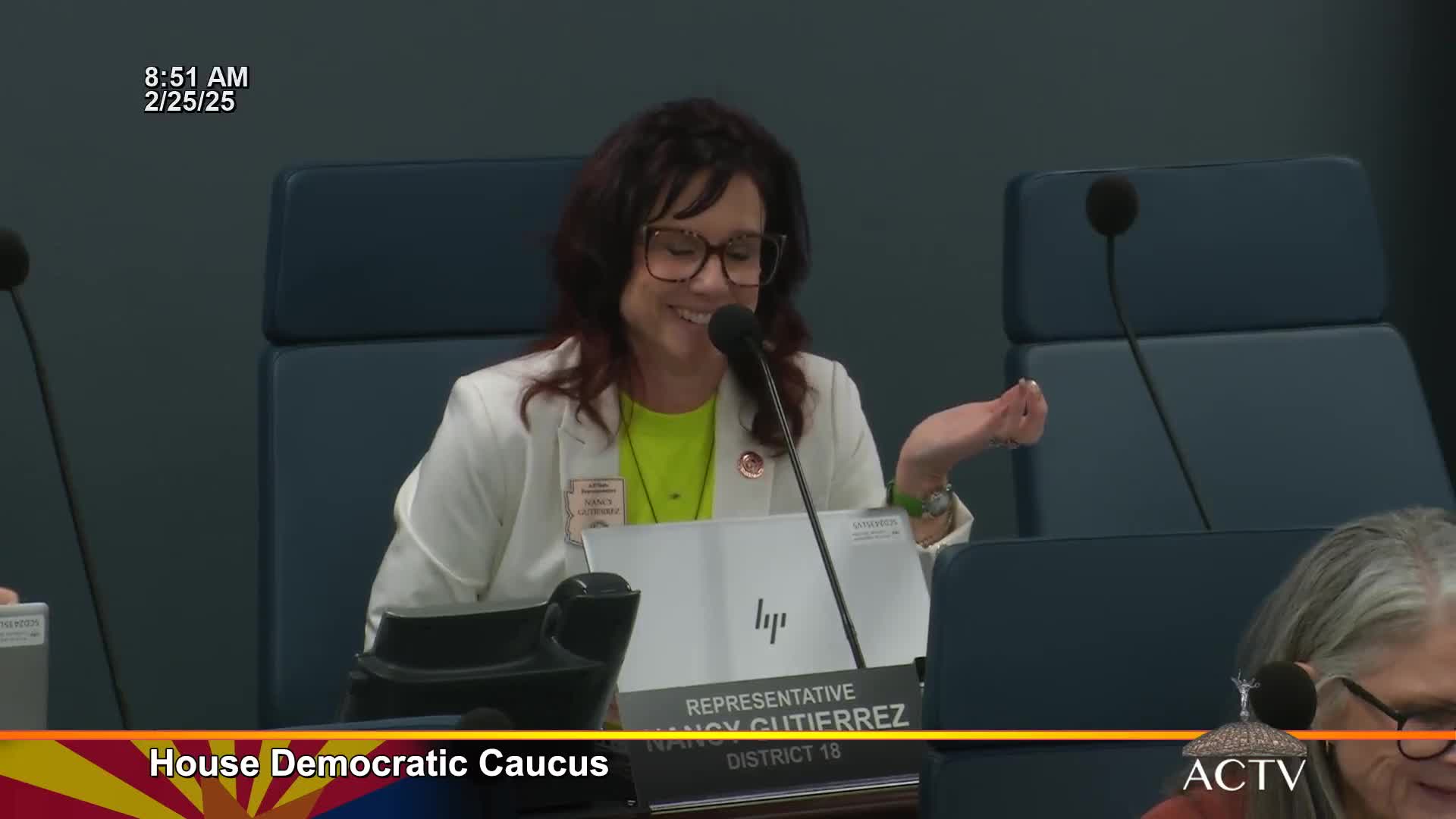Arizona bill would end K‑12 "rollover" payments, raising risk of funding shortfalls for districts
Get AI-powered insights, summaries, and transcripts
Subscribe
Summary
Legislators debated House Bill 2919, which would eliminate the practice of deferring June school payments into July. Sponsors and members warned the change could create a gap if districts' reported "debt cash" is lower than the rollover amount, possibly forcing the use of one‑time funds or reducing available operating revenue.
House members discussed House Bill 2919 on the floor, a measure to eliminate the state's long‑standing budget practice known as the rollover that defers one month of school funding into the next fiscal year.
The bill’s sponsor, Bridal, told members the rollover means "we are paying our June payments to our public schools in July of the next fiscal year, so 1 month late" and that HB 2919 "eliminates and prohibits the rollover." Bridal said the current rollover amount is $800,700,000 and that the bill and a committee amendment were technical and had caused confusion in committee.
Why it matters: The rollover effectively moves a month of payments between fiscal years. Bridal and other members said removing it could force the state to find cash in the fiscal year when payments come due rather than deferring them. That could reduce funds available for other expenses or require drawing down one‑time reserves.
Members pressed for mechanics and fiscal impact. Ranking Member Still Hamilton and Representative Bill Hamilton questioned how the bill would interact with school districts’ reported "debt cash," a district cash balance sometimes called "dead cash" that districts carry forward. Hamilton asked what would happen if districts reported $600 million in debt cash but the rollover is $800 million.
Bridal replied that the $600 million figure discussed in committee is debated and that the $600 million cited is from fiscal year 2024, not FY25. She said the practical effect if the numbers hold would be that the state would need to find the $200 million gap "in the budget to pay our schools on time. It's not new money, but it would be a hit to the revenues that we have available." Bridal also cited the Joint Legislative Budget Committee (JLBC), saying the committee’s most recent estimates showed about $935 million in available funding when certain adjustments are made. She told members that covering a potential $200 million shortfall would require using one‑time funds and acknowledged confusion over the one‑time totals, saying she was "mixing my numbers up" when trying to quote exact one‑time totals in committee.
Bridal and members gave a concrete example of the rollover interacting with district decisions: a district that used its debt cash in FY25 to pay a court‑ordered settlement (the transcript refers to a property tax case in Maricopa County) could show a smaller ending FY24 cash balance while still having used funds in FY25. Bridal said that situation could leave a district without sufficient dead cash to match the rollback calculation, and the state enforcement of the rollover could effectively reduce net funding for that district.
No formal vote on HB 2919 was recorded in the transcript segment provided. Members concluded the discussion and the bill’s sponsor indicated availability for follow‑up questions.
Ending: Sponsors characterized HB 2919 as a technical but consequential change to school cash flow. Members asked for and received budget context and cautioned that eliminating the rollover could require drawing on one‑time state funds or otherwise reduce revenues available in the coming fiscal year.
